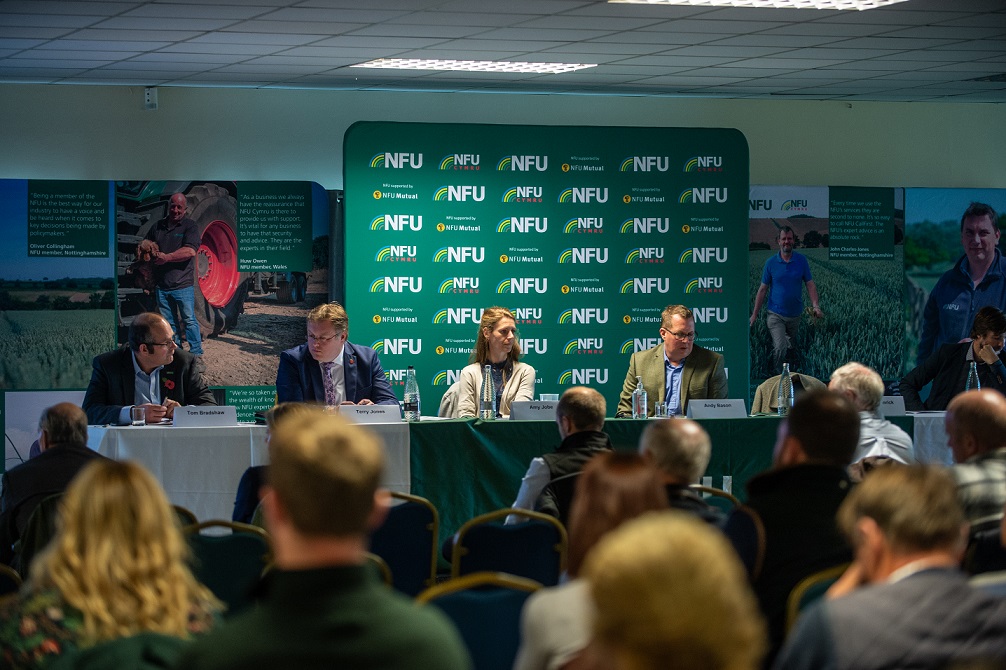The NFU will hold a half-day conference on regenerative farming at the Midlands Machinery Show on 16 November.
The ‘mini conference’ is aimed at farmers who want to find out more about what regenerative farming is, beyond the buzz word. It will include sessions that outline regenerative farming practices; examine the impact of practices on businesses’ bottom lines; and talks from farmers already employing regenerative farming.
“I am delighted to be chairing the East Midlands NFU Conference this year,” says David Exwood, NFU vice president.
“The growth in interest from farmers about regenerative farming is clear to see and with this conference, our role will be to help members understand the principles and how it might fit into their businesses as food producers.”
Simon Fisher, NFU environment adviser, is organising the conference. “It is for farmers who see a lot of words about regenerative farming but wonder what it’s all about,” he explains. “Soil health is under the microscope at the moment, and that’s the foundation of regenerative agriculture – Henry Dimbleby’s National Food Strategy focused on it, as does the NFU’s own Foundation of Our Food report.
“We also know that Defra is putting together a soil health action plan, and there is generally a lot of interest in regenerative farming amongst farmers themselves – this conference will therefore help them make a bit more sense of it all.
“We know a lot of soils are depleted, and if we’re going to be a more sustainable industry going forward then we’ve got to start putting some of these things right – if nothing else for the next generation of farmers.”
Precision technology to minimise inputs and no-till drills can help with more sustainable farming, adds Mr Fisher. And there will be plenty of them to see and compare at the Show itself, along with farm business consultants offering advice on the various environmental and grant schemes available.
Survey will paint picture of regenerative farming in region
The NFU is also hoping to use the conference to run a survey about what regenerative farming practices farmers are already using in the region, says Mr Fisher.
“There are five regenerative farming principles, and a lot of farmers are probably already doing at least some of these, like cover cropping and min-till which plenty of people have been doing for about five to seven years now. It will be interesting to see who is doing what, and how many are engaged in the full regenerative farming spectrum.”



